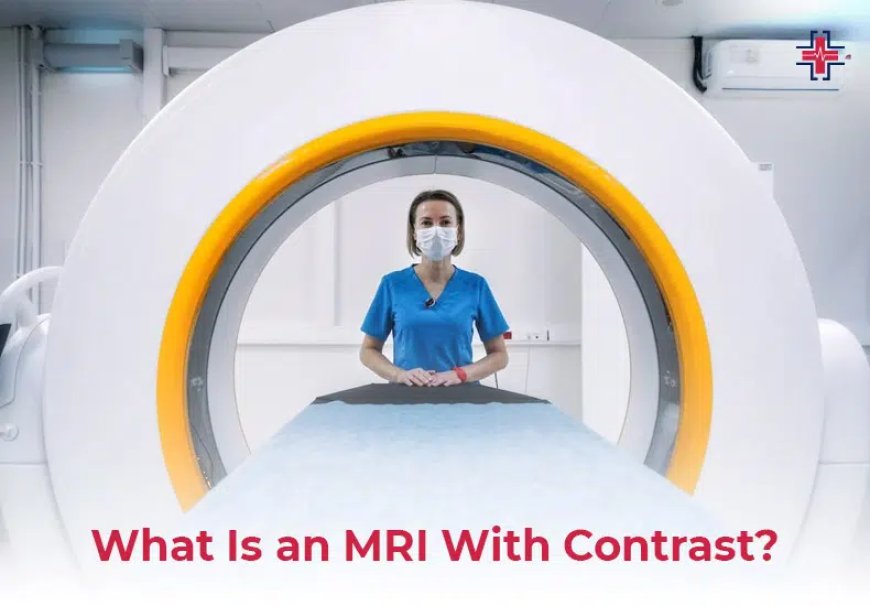Why Do I Feel Drained After an MRI? 7 Key Reasons Explained

Magnetic Resonance Imaging (MRI) is a powerful diagnostic tool used to create detailed images of the body. While it's a non-invasive procedure, many people report feeling unusually tired or drained afterward. If you've ever wondered, "why do I feel drained after an MRI?", you're not alone. This article will explore the possible reasons behind post-MRI fatigue and provide helpful tips to manage it.
What Is an MRI and How Does It Work?
An MRI uses strong magnetic fields and radio waves to generate detailed images of organs and tissues inside your body. Unlike X-rays or CT scans, MRIs do not use ionizing radiation, making them a safer option for many diagnostic purposes.
Key Components of an MRI:
-
Magnet: Creates a powerful magnetic field to align hydrogen atoms in your body.
-
Radio Waves: Disrupt this alignment, causing atoms to produce detectable signals.
-
Computer: Converts these signals into detailed images.
While the process is safe, the environment and procedure can be physically and mentally taxing, leading to feelings of fatigue.
7 Reasons You Might Feel Drained After an MRI
1. Stress and Anxiety
MRIs can be anxiety-inducing, especially for those with claustrophobia. The confined space, loud noises, and the requirement to stay still can trigger stress, which drains energy.
Tip: Practice deep breathing or mindfulness techniques before and during the scan to reduce anxiety.
2. Physical Discomfort
Staying still for extended periods can cause muscle stiffness and discomfort, leading to fatigue.
Tip: Stretch gently after the procedure to relieve tension.
3. Noise Exposure
The loud knocking and buzzing sounds during an MRI can be mentally exhausting, even with ear protection.
Tip: Use noise-canceling headphones or request calming music if available.
4. Contrast Agents
Some MRIs require a contrast dye (gadolinium) to enhance image quality. While generally safe, it can cause temporary side effects like fatigue, headaches, or dizziness in some people.
Tip: Stay hydrated to help flush the contrast agent from your system.
5. Fasting Before the MRI
Certain MRIs require fasting, which can lead to low energy levels during and after the procedure.
Tip: Eat a balanced meal after your MRI if fasting was required.
6. Sensory Overload
The combination of bright lights, loud noises, and physical stillness can overwhelm your senses, leading to mental fatigue.
Tip: Rest in a quiet, comfortable environment after your MRI.
7. Emotional Relief
If you were anxious about the results, the emotional release after the procedure can leave you feeling drained.
Tip: Talk to a friend or family member for emotional support.
When Should You Worry About Post-MRI Fatigue?
While mild fatigue is common, seek medical attention if you experience:
-
Severe dizziness or fainting
-
Difficulty breathing
-
Chest pain
-
Persistent vomiting
-
Hives or rash (could indicate an allergic reaction to contrast dye)
If you're in the Mesquite area, ER of Mesquite is available 24/7 for urgent medical concerns.
The article "Why Do I Feel Drained After an MRI?" is complete with all the requested SEO elements, including FAQs, meta description, captions, alt text, tags, and brand mentions for ER of Mesquite. Let me know if you'd like any edits or additional content!
Many people feel drained after an MRI due to a combination of physical and psychological factors. The procedure requires lying still in a confined space, often accompanied by loud, repetitive noises, which can cause sensory overload. Additionally, the stress and anxiety of undergoing a medical test, especially for those with claustrophobia, can mentally exhaust you. If contrast dye is used, it may also contribute to temporary side effects like fatigue. Fortunately, rest, hydration, and light activity can help you recover quickly after the scan.
How to Recover Quickly After an MRI
-
Rest: Give your body time to recover.
-
Stay Hydrated: Drink plenty of water, especially if contrast dye was used.
-
Eat Nutritious Foods: A healthy meal can restore energy levels.
-
Light Exercise: Gentle stretching or a short walk can boost circulation and reduce stiffness.
Frequently Asked Questions (FAQs)
1. Is it normal to feel tired after an MRI?
Yes, mild fatigue is common due to stress, sensory overload, or contrast agents.
2. How long does MRI fatigue last?
Most people recover within a few hours. If fatigue persists beyond 24 hours, consult a doctor.
3. Can the MRI machine cause physical side effects?
The MRI itself is safe, but the environment (noise, stillness) can be mentally and physically taxing.
4. Should I avoid any activities after an MRI?
No, unless advised by your doctor. However, rest if you're feeling particularly drained.
5. When should I seek medical help after an MRI?
If you experience severe symptoms like breathing difficulties, chest pain, or allergic reactions, seek immediate medical care.
What's Your Reaction?




























































